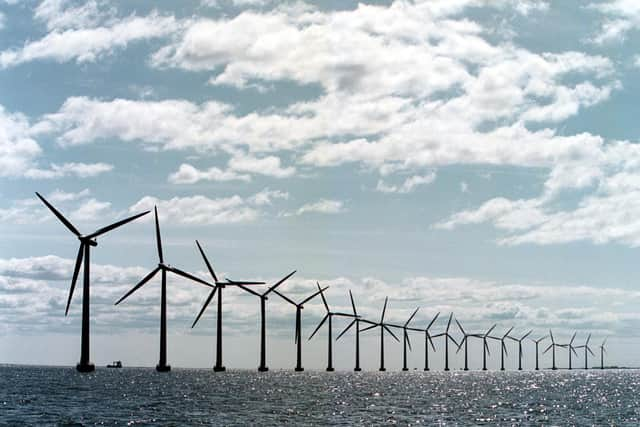Scotland is now a future world leader in floating offshore wind technology - Alan Cook


UK Energy Minister Greg Hands announced on Tuesday that the Government will match £30 million of industry funding to make available £61 million for the development of innovative Floating Offshore Wind (FOW) technologies.
The cash boost will fast-track research and development in FOW with 11 successful projects each being awarded up to £10 million each, with others to follow. These technologies will be used to enable turbines to be located in deep sea areas in the windiest parts around the UK coastline.
Advertisement
Hide AdAdvertisement
Hide AdOffshore wind development featured prominently in Crown Estate Scotland’s announcement last week which revealed the successful bidders in ScotWind - the first round of Offshore Wind Leasing in Scottish waters for more than a decade.


Crown Estate Scotland (CES) selected 17 projects out of a total of 74 applications and offered option agreements which reserve the rights to develop specific areas of seabed. The developments will generate £700 million in option fees which will be passed to the Scottish Government and local authorities.
Both announcements will go some way to maximising the efficacy and opportunity for FOW technology to ensure the optimum possible return, both in terms of megawatts deployed and jobs created in the sector.
A key requirement for achieving those twin objectives is to invest in innovation and the supply chain. The Energy Minister’s pledge is a significant step in that direction - a strong statement of intent from the UK Government - and is a clear indicator of intensified focus and investment in FOW from both public and private sector players, throughout this decade and beyond.
Much publicity has been generated around whether the £700 million heading to public coffers was less than might have been achieved. However, CES did pause the ScotWind process when significantly higher bids for English seabed rights than had been anticipated were received from Round 4. This subsequently raised the per square kilometre upper threshold from £10,000 to £100,000, effectively allowing the ScotWind option fees to increase tenfold to £700 million.
It should also be recognised that, unlike last year’s Round 4 bidding round in English waters, the ScotWind process went beyond hard cash and took into account factors including the experience and readiness of the bidding parties.
CES has commented that the quality of bids was high and that fine judgments required to be made in assessing bids. And although not relevant to the decision making process itself, each bidder had to give binding supply chain commitments which it is anticipated will benefit the Scottish and wider UK economies.
The process has produced a broad cohort of successful bids which includes a mix of smaller niche players, larger international entities and traditional established offshore wind developers.
Advertisement
Hide AdAdvertisement
Hide AdIn summary, ScotWind (and the UK Government’s latest financial commitment) is a very positive step forward for the renewables sector, creates significant investment opportunities, and positions Scotland as a future world leader in FOW technologies.
Alan Cook, Partner and renewable energy specialist at Pinsent Masons
Comments
Want to join the conversation? Please or to comment on this article.